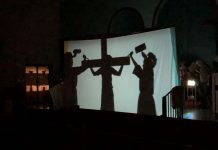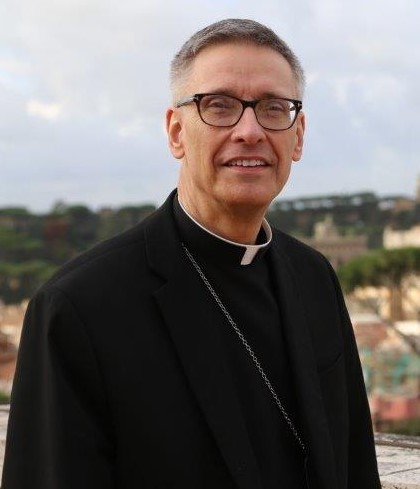By Tony DeGol
Proclaim!
Bishop Mark is offering a message of comfort for those anxious about not being able to celebrate the Sacrament of Reconciliation before Easter.
Communal Penance Services are not happening in parishes to avoid the gathering of crowds, and outdoor or drive-by Confessions offered by some priests may not be practical options for everyone.
For some, Lent is not Lent without the opportunity to receive formal absolution for sins.
When a person is not physically able to go to Confession, such as times like this when many are quarantined or trying to avoid public activity, a perfect Act of Contrition is sufficient for the forgiveness of sins, reminded Bishop Mark.
According to the Catechism of the Catholic Church, perfect contrition requires the love of God, the sincere desire for forgiveness, and the ardent commitment to receive the Sacrament of Reconciliation when available.
“That means a person can be assured that they remain in a state of grace even though they cannot go to Confession,” he added. “Even if it’s serious sin, and you’re truly sorry, and make an Act of Contrition, and go Confession the next time you can, there’s already forgiveness at work. That’s important for everyone to know.”
Bishop is also stressing that those impacted during this time are eligible to receive a Plenary Indulgence, which, according to the Catechism, removes the temporal punishment due to sin.
WHAT IS A PLENARY INDULGENCE? CLICK HERE
In the words of Pope John Paul II, an indulgence is “the expression of the Church’s full confidence of being heard by the Father when — in view of Christ’s merits and, by His gift, those of Our Lady and the saints — she asks Him to mitigate or cancel the painful aspect of punishment by fostering its medicinal aspect through other channels of grace.”
The conditions for the Plenary Indulgence include watching a televised Mass, praying the Rosary, the Stations of the Cross or other devotions, or at least reciting the Creed, the Lord’s Prayer, and a pious invocation to the Blessed Mother, offering this trial in a spirit of faith in God and charity towards one’s brothers and sisters. There must be a true commitment to fulfilling the sacramental obligations of Reconciliation and Eucharist as soon as possible.
“People can be assured of the graces that can come from even these restricted opportunities for prayer,” Bishop Mark mentioned. “God’s grace goes past all of these boundaries. People should be comforted by that.”































